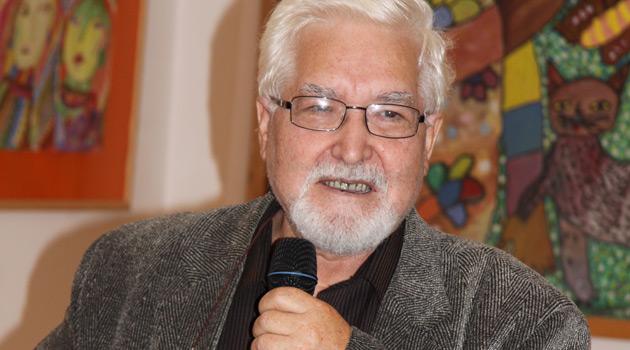On the 50th anniversary of Czechoslovakia's short-lived Union of Gypsies-Roma, community members recall its hopes
30 August marked the 50th anniversary of the establishment of the Union of Gypsies-Roma (Svaz Cikánů-Romů) in Czechoslovakia. This first-ever Romani organization allowed to officially exist by authorities in the Czech lands held its constituting congress in Brno on 30 August 1969.
While the Union lasted for less than four years before it was abolished by pressure from parts of the communist regime in the spring of 1973, it developed an admirable number of activities during that time. Its conception was preceded by many long years of efforts by the Romani intelligentsia to establish their own organization, and it was formed in the context of conditions relaxing society-wide during the Prague Spring, accompanied by a reformulation of the state policies being applied to Romani people and the transition from a policy of assimilation to one of cultural and social integration.
“I just saw it as a chance for us to solve our own problems for ourselves,” Romani community member Margita Lázoková recalls of her motivation to join the Union’s activities. Another Romani community member, Michal Čonka, describes the beginning of his work for change with the Union as follows: “The Coordination Committee called me … I didn’t even know who he was, Holomek, I was hearing his voice for the first time. I said to myself: ‘Dear Lord, he is speaking Romanes so nicely, I’ve half-forgotten it all …’. It pleased me that a Romani man who was so educated was looking for coworkers. They recruited me, they chose me, to establish Nevodrom here.”
During its brief existence, the Union achieved many successes and dedicated itself to various areas of activity. Above all, it strove to improve the economic and societal situation of Romani people in Czechoslovakia and did its best to advocate for Roma to be recognized as a national minority.
“They took me because I am a woman with a family, with children, and I know how Romani families work and what Romani women need […] I was in charge of education, family, the social sphere. I really latched on to the schools, because I see them as playing the main role. I know how it works in our families and that our children might need aid, so I saw a big chance and went for it,” Lázoková says.
The Union also developed significant athletic, cultural and social activities. “When the Union of Gypsies-Roma was working, I was singing here in Litoměřice with my husband. He was the chair here. […] Everybody knew that if the Union would be meeting or something, there would be a performance. It was decided that the parties would happen every Saturday. When the Union of Gypsies-Roma was working things were better, more cheerful. Romani people believed in each other more,” eyewitness Mária Lendelová describes the atmosphere of the time.
Contacts were also established with the international Romani movement. “They went to England for that famous congress in 1971, the congress of the Romani Union, the International Romani Union, they were invited. Because I spoke English, they said to me: ‘You’ll go, you speak English, you’ll interpret for us there and so forth’,” recalls Karel Holomek.
Documentation about the culture and history of Romani people was collected and presented in exhibitions with a view toward establishing a museum, and the Union’s bulletin became a platform for the oldest generation of Romani litterateurs and for much else. Last but not least, the Union aided Holocaust survivors in the Romani community with applying for official recognition of their status as victims of Nazism and worked on public commemorations of the Romani victims – in 1973, at the site of the former “Gypsy Camp” at Hodonín u Kunštátu, the Union established the tradition of public commemorative ceremonies and planned to renovate both that site and the site of the other former “Gypsy Camp” at Lety u Písku and to erect memorials at both locations.
The establishment of the Union of Gypsies-Roma was a certain reverberation of the Prague Spring, but it did not survive the incoming “normalization” era and was abolished in the spring of 1973. The disappointment many Romani people experienced about that decision was described for the Memory of the Roma project by Ms Lázoková: “Once they called us to come to Žerotínovo náměstí, to the South Moravian National Committee office there, to close down the activities of the Union of Gypsies-Roma. The city representatives asked me: ‘What’s your view of this? What do you think about it?’ What could I say, I was very sad, because it seemed to me that somebody was throwing us out of a moving train. We had plans, concepts, an ocean of matters that were incomplete, unfinished, and now all that would come to a standstill and the problems would just grow.”
